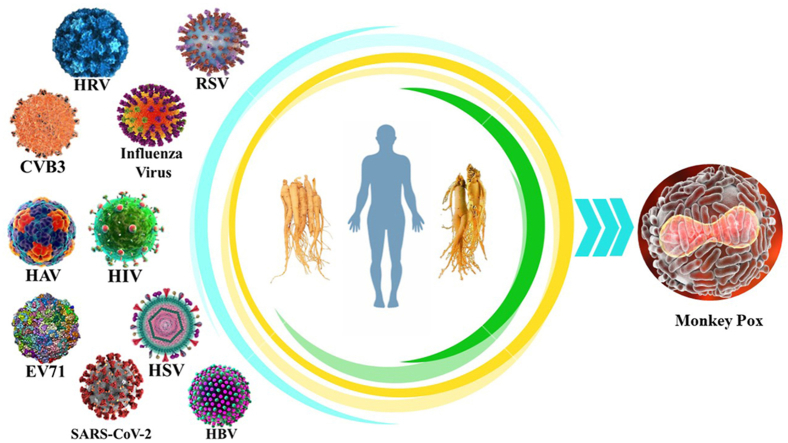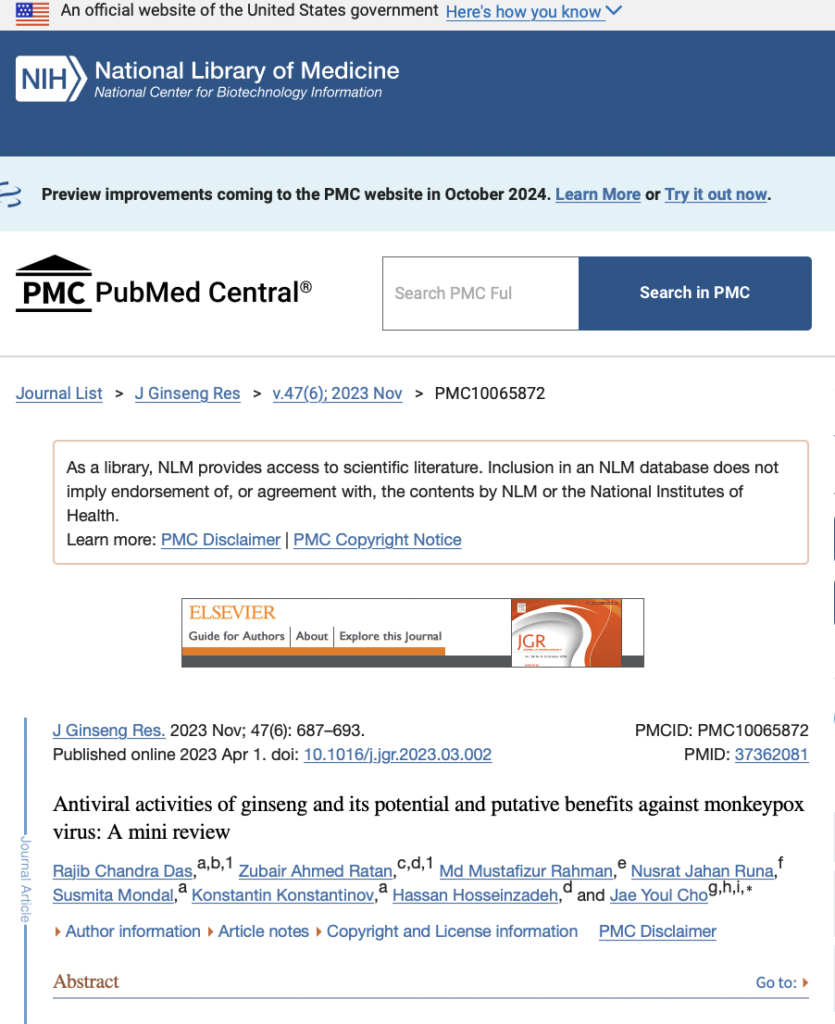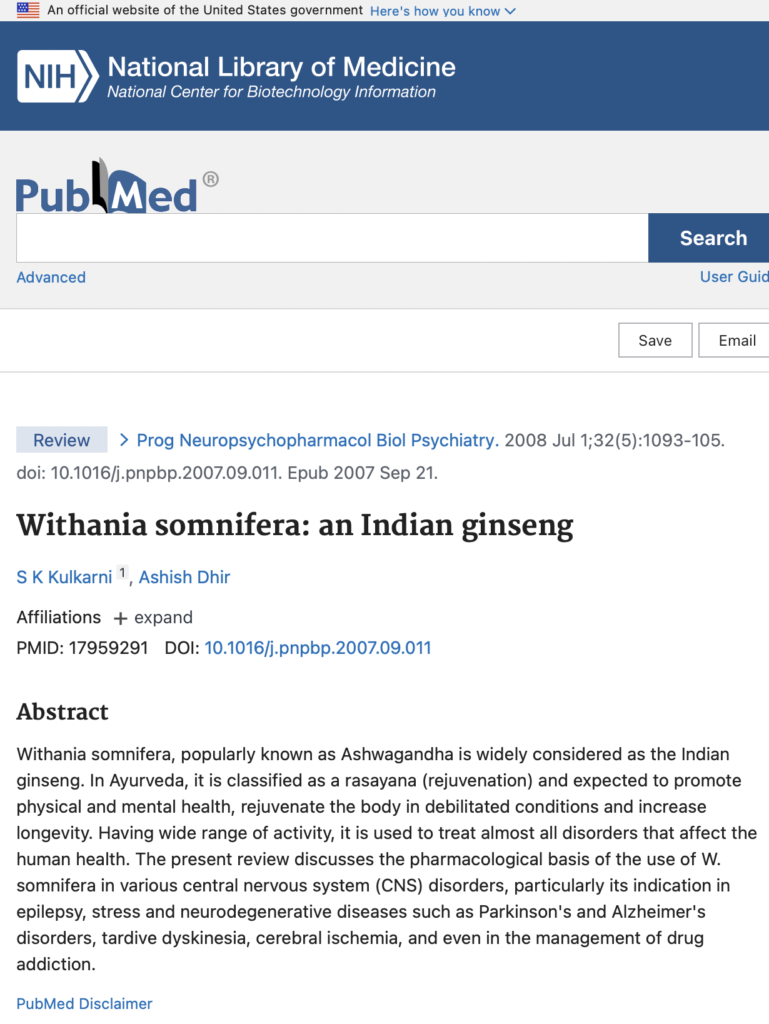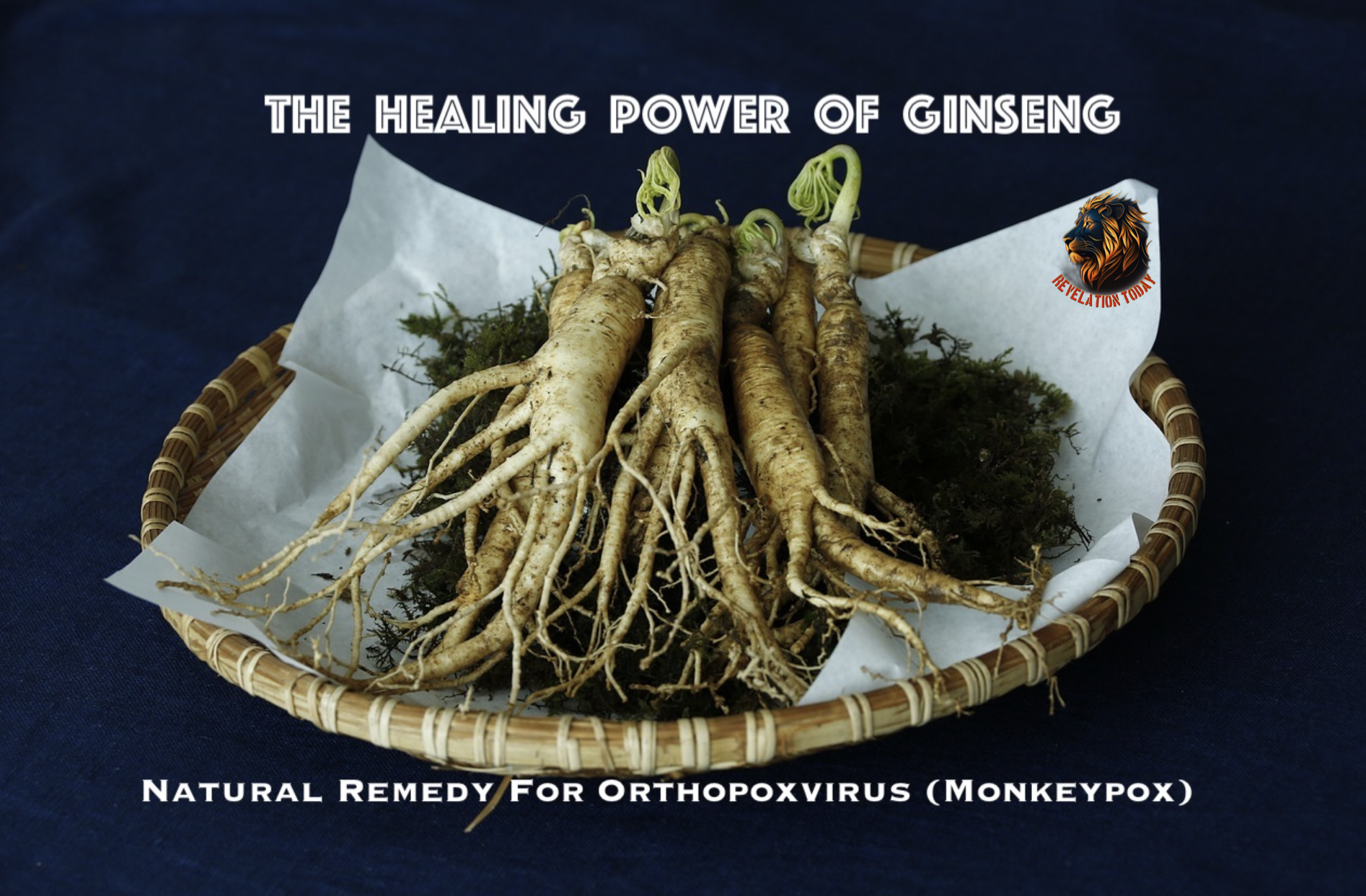Vaccines: Not Universal Panacea
The recent outbreak of the Mpox virus, aka monkeypox, abbreviated as MPXV, has raised concerns among the scientific community. So far, various treatment methods such as antivirals, vaccinia immunoglobulin or VIG, and smallpox vaccine have been used to treat this infection which proven vaccines with lots of serious side effects that can even be life-threatening. Besides vaccines, are there any traditional medicines that can be used to ward off the monkeypox virus?
The answer is YES..

Potential of Ginseng Against Monkey Pox Virus
Ginseng is known as the “king of all herbs” and has been used for thousands of years in traditional medicine. Especially for infectious diseases. Various scientific studies show that ginseng has promising antiviral effects.
In the context of the monkeypox virus, ginseng may be an adaptogenic agent that helps prevent infection along with other medications and vaccines.
Reporting from the National Library of Medicine, a review from Rajib Chandra Das and his colleagues entitled Antiviral Activities of Ginseng and Its Potential and Putative Benefits Against Monkeypox Virus shows that ginseng is able to improve the body’s immune system.

Active compounds in ginseng, such as ginsenosides, can help the body fight various viruses, including the monkey pox virus. Several studies have also found that ginseng has analgesic (pain reliever), anti-inflammatory (anti-inflammatory) and antibacterial properties, all of which are useful in treating the symptoms and complications of monkey pox.
Apart from that, there is an interesting fact from Chinese medical history, where ginseng powder was once used as a natural vaccine against smallpox caused by the variola virus, which is a member of the same family as the Mpox virus.
According to experts, it is important to remember that although monkey pox is generally relatively mild and can heal on its own, in more serious cases, antiviral medication is still needed. Proper care, including administering painkillers, maintaining hydration, a healthy diet, and preventing bacterial infections in skin wounds, is part of the recommended treatment.
Withania somnifera: an Indian ginseng

For hundreds of years, people have used the roots and the bright orange-red fruit of ashwagandha for healing purposes. This plant is often called Indian ginseng or winter cherry. The name “ashwagandha” comes from the smell of its root, which means “like a horse,” where “ashwa” means horse.
Withania somnifera, popularly known as Ashwagandha is widely considered as the Indian ginseng. In Ayurveda, it is classified as a rasayana (rejuvenation) and expected to promote physical and mental health, rejuvenate the body in debilitated conditions and increase longevity. Having wide range of activity, it is used to treat almost all disorders that affect the human health. The present review discusses the pharmacological basis of the use of W. somnifera in various central nervous system (CNS) disorders, particularly its indication in epilepsy, stress and neurodegenerative diseases such as Parkinson’s and Alzheimer’s disorders, tardive dyskinesia, cerebral ischemia, and even in the management of drug addiction.
Source: Tempo

